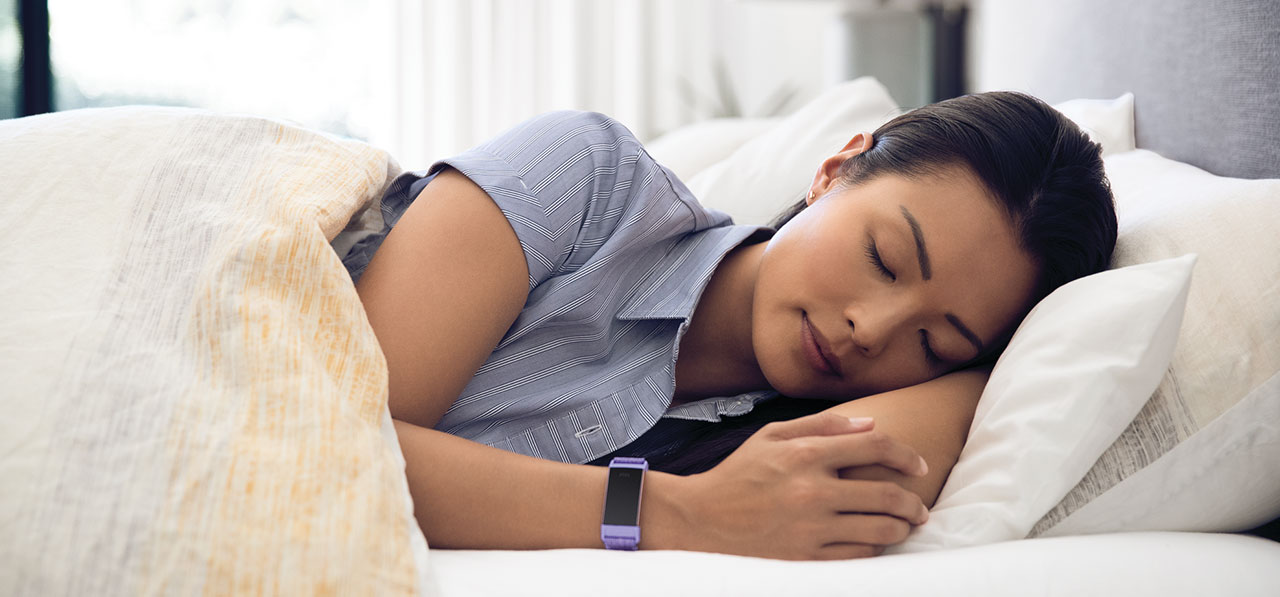How to Beat Stress and Conquer Sleep This Holiday Season (It’s the Gift that Keeps on Giving)
The holidays can be the most wonderful time of the year – a time for giving thanks, celebrating with family and friends, and indulging in festive treats. But for many of us, this time of year also means heightened financial stress (lots of presents to buy?), family stress (hosting the extended family?), and work stress (looming end-of-year deadlines?).
Getting quality, restful sleep is the best gift you can give yourself to optimize your overall wellness. It can support sharper mental performance, greater emotional balance and calmness, increased productivity, and a healthier immune system. Read on to learn how to find your Silent Night this season and all year long.
Quiet Your Mind with the Gift of Time
Wouldn’t it be great if your brain was like a light switch and you could just turn it off when it’s time for sleep? Even when you feel physically exhausted after a non-stop day at work and home, your mind is still spinning and you can’t seem to turn it off. This is among the most common complaints of sleep-challenged adults and can cause long-term insomnia if not addressed properly.
The good news is that your mind can turn off and slow down; you just need to give yourself the proper time and space.
- Take at least 30 minutes to wind down at night. The laundry and cleaning can wait. Give yourself the mental space to relax.
- Say goodnight to your electronics. Charge your phone across the room to avoid temptation. Consider moving the TV out of your bedroom (or at least the remote away from your nightstand).
- Before you get into bed, make a list of the things you need to remember for tomorrow. Just the act of writing things down can help clear your mind and allow your brain to shut off.
- Don’t get discouraged – give yourself a good week or so to make these healthy sleep habits stick. By the time your head hits the pillow, you’ll be ready for sleep.
Carve out Space for Relaxation and Meditation
A great way to prepare for a restful sleep is to practice an active relaxation routine. Be careful not to conflate relaxation with distraction – like watching TV, shopping online, or texting a friend. Relaxation is a specific, active process to calm and clear your mind.
Try one of these relaxation techniques before bed:
- Yoga and meditation: Mindfulness meditation has strong support for helping to promote healthy sleep. Other approaches such as guided imagery can be very helpful as well. Nighttime yoga practices can also promote relaxation.
- Diaphragmatic breathing: This is that deep breathing where your stomach expands as you inhale and contracts back in when you exhale, maximizing your oxygen intake to help slow down your breathing, your heart, and your thoughts, as well as relax your muscles and improve your mood. Just a few slow breaths can help set the stage for a restful night. In fact, you can do 2-5 minute guided breathing sessions through the Fitbit Relax app.
- Body scanning: Pair this one with your deep breathing exercises. Start at your toes and bring your awareness up your legs, torso, arms and hands, shoulders and back, neck, and head. While you take your breaths, pass your awareness over those muscles and if they are tense, feel them relax. In just a couple of minutes, this can help you prepare to let go of the day.
Just Say No to the Soft Blue Glow
We are a digitally addicted society, and though we can’t realistically rid ourselves of all our devices, we can mitigate our tech consumption. If you can limit your screen time and put away your devices 30 minutes to one hour before bed, you earn serious points.
How screens get in the way of healthy sleep:
- The light from the screens – especially any light that is blue, green, or white – can biologically suppress our natural sleep-regulating hormone melatonin, and trick your body into thinking it’s not nighttime. The eye cannot tell the difference between natural light and artificial light, and it uses those frequencies of light to get a “daytime” signal. Seeing those colors when the brain expects it to be nighttime can make it harder to fall asleep. (If you must get on your screen right before bed, make sure it is kept as dim as possible, or use a screen filtering program or blue-blocking glasses.)
- Screens interfere with your mind’s natural winding-down process. Ever get engrossed in social media or a texting marathon and before you know it an hour has flown by? That’s an hour that you could have spent sleeping.
Holiday Eating Habits Can Make or Break Your Sleep Cycle
Don’t just blame the turkey. That sleepiness you feel after a heavy traditional holiday meal is more likely due to the higher-than-normal calorie count and the effect of heavy carbohydrates on your insulin levels.
- Enjoy and indulge with family and friends, but do your best to avoid that tempting post-meal nap. Late afternoon or evening naps can interfere with your ability to sleep, tricking your mind into thinking it’s bedtime.
- Sleeping after a heavy meal can be more shallow and therefore lower quality, especially if you are prone to reflux.
- Confine your food intake within a 12-hour window. Emerging scientific evidence shows that calories consumed closer to sleep are more likely to be converted into weight gain. If you eat breakfast at 8am, then you shouldn’t have anything to eat after 8pm, for example. A small snack (like some milk and cookies) might be fine, though!
Deck the Halls, not Your Bedroom
Go crazy with the holiday lights, but keep them out of your sleep sanctuary. Blinking, chiming or even plain white decorative lights can disorient your sleep when you wake up during the night and make it harder to fall back asleep.
To keep out unwanted light and noise, try these tips:
- Consider a comfortable eye mask and/or blackout curtains.
- Block out the sound with noise-canceling earplugs, sound-masking earbuds, a fan, or a white noise generator.
- Be mindful of the temperature. The body sleeps well in cooler temperatures, but during the holidays people can tend to leave their heat on too high or low at night, making sleep more difficult. Layer your sheets and blankets so you can add/remove them as needed during the night. Not only does the air temperature, but your body temperature changes as well.
Start Your Day by Waking Up the Right Way
The best way to end a restful night’s sleep is to get up and start the day refreshed. This time of year, many of us wake up when it’s still quite dark out. Just as light at night can make sleep more difficult, lack of light in the morning can make you sluggish, tired, and feeling not so jolly.
What to do as soon as you wake up:
- Turn on some bright lights to send your brain a “morning” light signal. This will help reset your rhythms for the day and get you going.
- Avoid hitting the snooze button, no matter how cozy and warm your bed is. When we wake during the night, a biological process called sleep inertia helps us get back to sleep. In the morning, your sleep inertia can make it very difficult to get out of bed. The best way to get rid of sleep inertia is to get up and start your day – turn on those lights, get moving with a shower or a walk. The sleep inertia should wear off soon, and you will have more energy to start your day.
By focusing on healthy sleep habits, you can beat holiday stress and perform your best at the office, with plenty of energy left over to enjoy your time with family and friends. Cheers!


